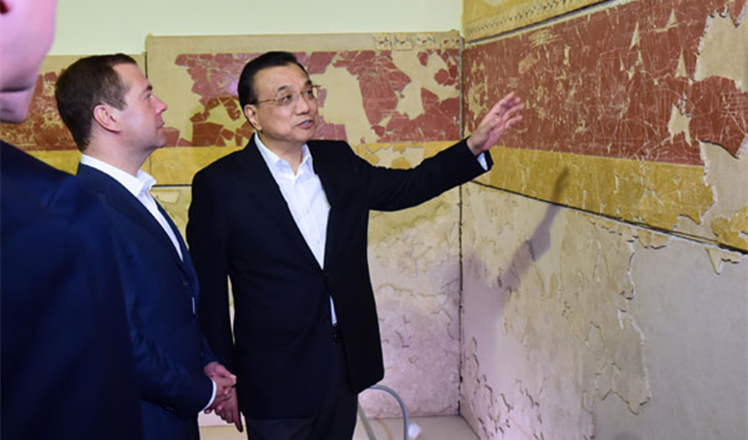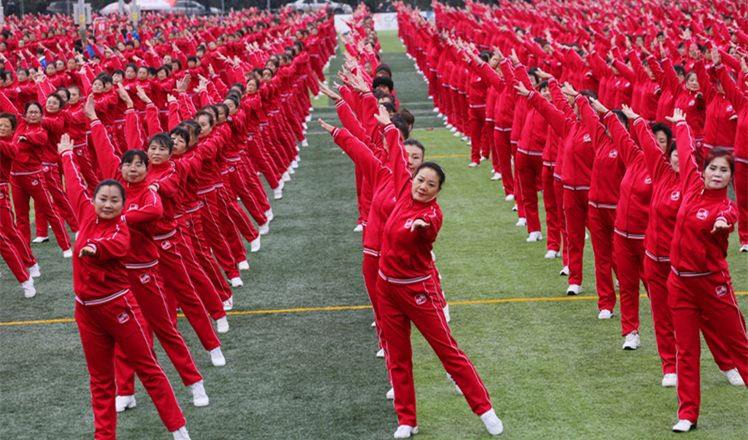China to reform S&T income system to boost innovation
Updated: 2016-11-07 21:12
(Xinhua)
|
||||||||
BEIJING -- China will reform its income distribution system for science and technology (S&T) personnel to better reflect their contributions.
A document, "Opinions on Implementing Distribution Policy to Focus on Value of Knowledge," was published on Monday by the general offices of the Communist Party of China (CPC) Central Committee and the State Council.
Noting current issues such as the imbalance between S&T workers' contributions and their income, the document attempts to tie earnings to scientific, economic and social value.
According to the document, distribution policies should consider the characteristics of different jobs and fields, with improved medium- and long-term evaluation of staff performance and their contributions.
"In addition to more material and economic stimulus, greater efforts should be made to honor S&T workers who have done outstanding work," it said.
While calling for a steady increase in both basic salaries and bonuses, the document specified that, in the case of S&T achievements that yield economic benefits, those who play a key role in making the achievements possible should receive a greater portion of such benefits.
It vowed greater freedom for S&T institutes and colleges to set up their own income distribution standards, but also urged them to value contributions more and strike a balance among teaching staff, researchers, developers and those working in logistical support and other posts.
According to the document, these organizations should prioritize funding support for the basic functions of research and education, and while personnel are allowed to accept side projects from enterprises and social groups, they must first ensure their job duties are performed on schedule.
Also, S&T workers are allowed to hold part-time jobs in other institutes with official approval, but they should report their earnings and never disclose technical secrets or harm the legal interests of their primary institute.
Similarly, university teachers are allowed to hold multiple paid teaching jobs, and more efforts should be made to promote the sharing of outstanding textbooks and lessons via the Internet and other channels.
"Income gaps within a unit should be kept at a reasonable level," the document said, calling on efforts to ensure sound salaries and treatment of young researchers and teachers.
The document aims to "accelerate the implementation of the innovation-driven development strategy, stimulate science workers' passion for innovation and start-ups, and create a social environment in which hard work, knowledge, talent and creativity are respected."
- Science and technology enters primary schools
- Construction contract dispute between Qingdao-based Huajian Sunshine Electric Power Science and Technology Co, Ltd, Gansu-based North Electric Power Engineering Co, Ltd and Qinghai-based Zhongzhu Photovoltaic Power Generation Co, Ltd
- Structural reform to beat middle-income trap
- Income growth offers rich opportunities
- Income tax reform needs better homework
- The Income of Researchers in Public Sectors: The Ideal Goal and Current Countermeasures(Special Issue, No. 40, 2016)
- Summit of Climate Conscience kicks off in Morocco
- British Airways announces special fares for New Year
- S. Korean president says to accept investigation over scandal if necessary
- Names of twin panda cubs born in Austrian zoo revealed
- May's Brexit plans thrown into chaos by landmark court ruling
- Syrian army announces 'humanitarian pause' on Friday

 Premier Li visits the State Hermitage Museum
Premier Li visits the State Hermitage Museum
 Hogwarts-like assembly hall attracts visitors
Hogwarts-like assembly hall attracts visitors
 50,000 people set new Guinness square dance record
50,000 people set new Guinness square dance record
 Top 10 congested cities in China
Top 10 congested cities in China
 The final take: Trump vs Hillary
The final take: Trump vs Hillary
 Want to experience weightlessness? Try this ride
Want to experience weightlessness? Try this ride
 15,000 paintings, 5,000 candidates, one test
15,000 paintings, 5,000 candidates, one test
 Creating waves with stunts
Creating waves with stunts
Most Viewed
Editor's Picks

|

|

|

|

|

|
Today's Top News
US election rhetoric unlikely to foreshadow future US-China relations
'Zero Hunger Run' held in Rome
Trump outlines anti-terror plan, proposing extreme vetting for immigrants
Phelps puts spotlight on cupping
US launches airstrikes against IS targets in Libya's Sirte
Ministry slams US-Korean THAAD deployment
Two police officers shot at protest in Dallas
Abe's blame game reveals his policies failing to get results
US Weekly

|

|







